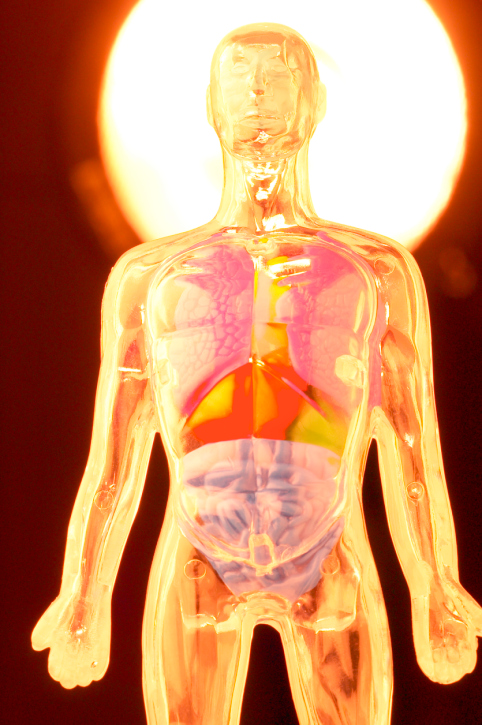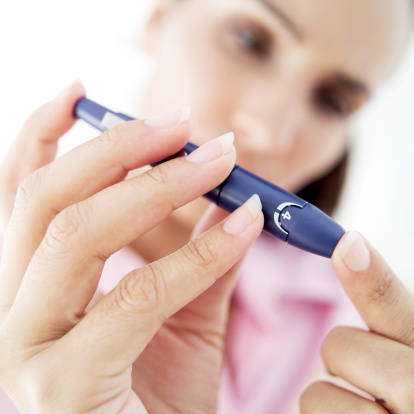Shoulders, Hands, Fingers and Feet
Learn what diabetes can do to your body and how to cope with it!
Do you ever wake up in the morning feeling stiff and tingly? Do you find that sometimes these feelings go away as the day goes on, but sometimes they don’t? For many people the problem is arthritis, but for others it is not. Did you ever wonder if these feelings are related to diabetes? Certain problems that happen in the joints of your shoulders, hands, fingers and feet are more common for people who have diabetes. Some are even caused by its long-term effects. The good news is that these joint problems can get better with specific treatments. Also, keeping your blood glucose closer to the normal range may help avoid some of these problems.
SHOULDERS
Frozen Shoulder is just like it sounds. It is a painful stiffness in one or both of your shoulder joints. This stiffness makes it difficult to move your shoulder all the way around, like it normally would. Some people with Frozen Shoulder find they can’t move their shoulders at all. It feels stuck or frozen in place. This stiffness can make it hard or even impossible to carry out simple everyday activities like dressing, eating and sleeping. Frozen Shoulder is seen five times more often among people who have diabetes than among people who do not.
THREE STAGES OF FROZEN SHOULDER:
- Stage one: The affected shoulder begins to ache and feel stiff before becoming increasingly painful. It may be worse at night, especially if you sleep on that shoulder.
- Stage two: The affected shoulder becomes stiffer, but usually not more painful. You may notice that the size of your shoulder muscles decrease. This is because you are using your shoulder less. This stage usually lasts between four and twelve months.
- Stage three: You start to regain some movement in the affected shoulder, and the pain starts to go away, but the pain is not gone altogether. In this stage, you should be able to resume many of your regular activities. However, you may still not have full movement of your shoulder. This stage usually lasts five to twelve months.
TREATMENT
Here are some treatment options and suggestions for your shoulders. As always, talk with your health care provider before making any changes to your health care routine. Treatment of Frozen Shoulder depends on how bad the pain is, how stiff the shoulder is and the stage that you are in. In general, it is best for you to use your shoulder as much as you can.
- Your health care provider may prescribe simple range-of-motion exercises that you can do on your own. Or you may be referred to a physical therapist.
- Your health care provider might also suggest a non-steroidal anti-inflammatory medicine such as aspirin, ibuprofen or naproxen to decrease the pain. Take these only if your health care provider says they are safe for you. You will find that keeping your blood glucose in your target range helps speed your recovery.
- Other treatment options include a shoulder adjustment, heat applications, an injection of corticosteroid (cortisone) into the joint or a nerve block. These may relieve the pain, but they do not cure the problem. Beware that cortisone injections can raise your blood glucose, so check your blood glucose levels more often for the first few days after an injection.
HANDS AND FINGERS
The most common joint problem in the hands of people with diabetes is called the Stiff-Hand Syndrome. Another common nerve and joint problem is Carpal Tunnel Syndrome (CTS). CTS is not caused by diabetes, but happens more often to people with diabetes, especially those who have diabetic neuropathy, also known as nerve damage.
STIFF HAND SYNDROME
Stiff Hand Syndrome is painless. It usually begins in your little finger. Then it spreads over time to your thumb. This stiffness then keeps you from being able to straighten your fingers fully. The skin on the back of your hand may also become thick, tight and waxy-looking. One way to tell if you have Stiff Hand Syndrome is to hold the palms of your hands together as if you are praying. If all of the skin and joints of your palms and fingers don’t touch, you may have Stiff-Hand Syndrome.
CARPAL TUNNEL SYNDROME
The symptoms of Carpal Tunnel Syndrome are numbness, tingling, weakness or pain in your fingers and/or your hands. Sometimes this can even include your arms and elbows. It can feel like pins and needles. It is often worse at night and may even wake you up. These symptoms can be made worse by movements that involve your wrist, like holding a newspaper or a book, driving, writing, using a computer keyboard and even moving your hands to eat.
CTS is caused by pressure on a nerve that runs through the carpal tunnel in your wrist. High blood glucose levels can add to this pressure. CTS is more common among people with diabetic neuropathy. To find out if you have CTS, your health care provider may tap on your hand, wrist or arm or ask you to place your hands in a certain position to see if symptoms occur. He or she may recommend nerve and muscle tests, X-rays and/or blood tests.
TREATMENT
Here are some treatment options and suggestions for your hands.
- There are a variety of hand exercises and stretches you can do.
- If these exercises don’t help or are too painful, ask your health care provider to refer you to a physical therapist. A physical therapist can supervise your exercises and may provide paraffin wax treatment.
- If you have CTS, do everything you can to decrease pressure on your nerve. Splints are helpful to keep your wrists stable, especially at night while you sleep. Non-steroidal anti-inflammatory medications such as aspirin, ibuprofen or naproxen can decrease the pain. Talk with your health care provider about whether a pain reliever would be helpful and safe for you.
- Sometimes a corticosteroid injection into the carpal tunnel can help. Be aware that cortisone injections can raise your blood glucose, so check your blood glucose levels more often for the first few days after an injection. If CTS symptoms do not improve, ask your provider for a referral to a hand surgeon. Surgery can be effective to decrease the pressure on your median nerve.
FEET
Neuropathy, or nerve damage, affects your ability to detect sensations, mainly in your feet. Neuropathy can cause numbness, tingling, increased pain or produce no symptoms at all. Having feeling in your feet actually protects them. Without feeling, you may wear shoes that are too tight or injure your feet in other ways and not even know it. If untreated, this can lead to a sore, an infection or a skin ulcer.
CHARCOT’S JOINT
Charcot’s Joint or Charcot’s Foot is a foot problem that happens to people who also have neuropathy. The bones in your foot become weakened and fracture easily, but because of the nerve damage, you don’t feel the pain. If you don’t feel the pain, you may continue to walk on the foot. This causes more damage and, later, a foot deformity. If you and your health care provider don’t recognize and treat this problem early, the shape of your foot can change greatly. This can cause problems with walking and finding shoes that fit.
An early sign of Charcot’s foot is that the foot is warm to the touch. You may also have redness and swelling. There usually is no pain, but you may notice a change in the shape of your foot. The arch of the foot can collapse if the problem is not recognized and treated.
TREATMENT
Here are some treatment options and suggestions for your feet.
- Because Charcot’s Foot can lead to wounds, infections and even amputation, remember the best treatment for diabetes-related foot problems is prevention.
- Be sure to look at your feet every day. Look for red areas, blisters, sores, cracks in the skin and dry callused areas. Treat any problem areas and call your health care provider right away if these do not begin to get better within two days.
- Because not all foot doctors or orthopedic surgeons are familiar with the care and treatment of Charcot’s Foot, ask your health care provider to refer you to someone who is.
- Treatment for Charcot’s Foot most likely will include putting your foot in a cast for six to nine months.
- You may need to take a medicine, called a bisphosphonate, that decreases the breakdown of bone.









